Exhibitors Laud FNITCC Atlanta As Game-Changer For Non-Oil Exports Growth



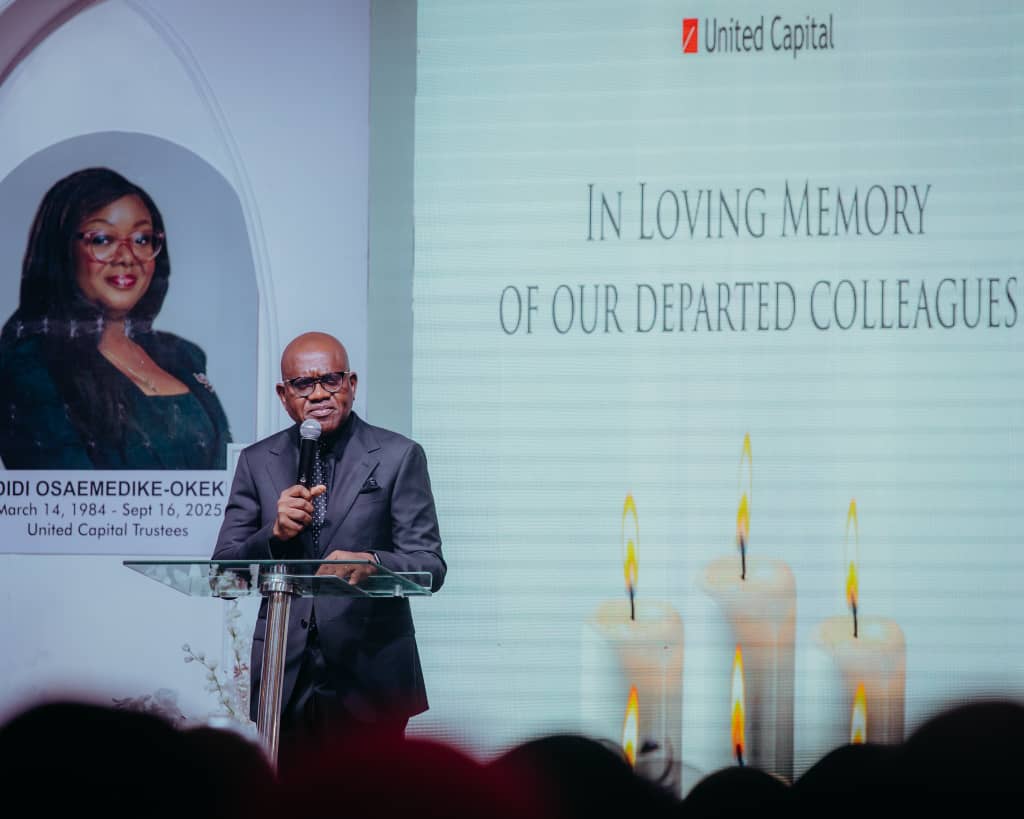
Yesterday, United Capital Group held a solemn and befitting memorial service in honour of six colleagues who tragically lost their lives on Tuesday, September 16, 2025, following a fire incident at Afriland Towers, the company’s Lagos headquarters.
The service, held at Harbour Point, Victoria Island, Lagos, brought the capital market to a standstill as regulators, industry leaders, clients, partners, and the wider business community gathered in solidarity to commiserate with the organization, alongside the families and loved ones of the departed. It was also streamed live for well-wishers outside the country, while additional viewing centres were set up in Abuja and Port Harcourt, where the Group is also domiciled, allowing more colleagues to pay their respects.
The memorial opened with a heartfelt address from the Group CEO, Peter Ashade, who led the gathering in a moment of silence before delivering a moving tribute. In his remarks, he reflected on the weight of the loss, shared personal recollections of each of the deceased, and offered words of encouragement to grieving families and loved ones.
This was followed by Tony Elumelu, CFR, Chairman of Heirs Holdings, who spoke with visible emotion as he extended his deep condolences to the families, reaffirming the unity and resilience of the United Capital and Heirs Holdings family in mourning.
The service featured deeply moving tributes from family members, friends, and colleagues, capturing the lives and legacies of the departed. It concluded with a word of encouragement from Pastor Ituah Ighodalo, whose message provided hope and consolation, followed by a stirring rendition from renowned singer Timi Dakolo, which left the entire hall in solemn reflection.
Guests described the ceremony as a respectful and dignified occasion, befitting of the memory of the departed colleagues. United Capital Group noted that while the pain of their passing remains profound, their memories, impact, and contributions will live on in the hearts of all who knew them.
 Businessman and billionaire, Femi Otedola, has waded into the ongoing dispute between the Depot and Petroleum Products Marketers Association of Nigeria and the Dangote Refinery, advising the marketers to restructure and consider buying over the Port Harcourt Refinery to stay relevant in the downstream business, instead of “resisting progress”.
Businessman and billionaire, Femi Otedola, has waded into the ongoing dispute between the Depot and Petroleum Products Marketers Association of Nigeria and the Dangote Refinery, advising the marketers to restructure and consider buying over the Port Harcourt Refinery to stay relevant in the downstream business, instead of “resisting progress”.
In a statement on Monday, Otedola drummed up support for the Dangote Petroleum Refinery.
The Dangote Refinery was commissioned in May 2023.
“What is DAPPMAN fighting for today? To preserve a model built on fuel imports, subsidy exploitation, and outdated infrastructure? That era is fast disappearing.
“The setting up of depots was mainly to collect PFIs. No depots, No PFIs from NNPC who were sole suppliers of gasoline at the time and which thus led to the breeding of complacent importers whose sole agenda was on arbitrage and subsidy margins.
“Since PFI is gone, I see no reason why Dangote Refinery should subsidize DAPPMAN with N1.5 trillion which they are asking Dangote Refinery to pay and subsequently pass this cost to consumers. I salute the courage of my brother Aliko Dangote, like Amazon Incorporated in bringing about transformative change in the downstream sector.
“On subsidy, I personally warned President Goodluck Jonathan that he was being misled. The system was built to benefit depot owners, and DAPPMAN members became the primary beneficiaries. Over ₦2 trillion was siphoned through questionable claims, all tied to depot licenses. The policy rewarded neither transparency nor innovation, it encouraged rent-seeking and corruption.
“Let’s also address a myth that continues to be repeated. Depots do not drive employment as some claim. A typical depot employs perhaps five people, gatekeeper included. In contrast, a single filling station can provide jobs to dozens of Nigerians—from pump attendants to cashiers, security personnel, and cleaners. If anything, DAPPMAN members should be focusing on owning and scaling last-mile retail outlets, not holding on to tanks built for a fuel import economy that no longer serves us.
“The global picture is instructive. Depots in Amsterdam or Houston were designed to serve export markets, especially Africa. With Nigeria now refining locally, such infrastructure is increasingly unnecessary.
“The same thing happened in the cement industry. Once Nigeria started producing cement locally, the bulk carriers that used to dock at our ports were retired, many sold as scrap. The same outcome awaits fuel depots. If DAPPMAN members do not adapt, they will not only become irrelevant, they may go bankrupt.
“Instead of resisting progress, they should consider selling, restructuring, or investing in new value chains. In fact, if they truly believe in competition, they could even come together and acquire the Port Harcourt Refinery and see if they can succeed where NNPC could not.
“Even in developed markets, refinery operators are downsizing their depot footprint. Many are converting them into bonded warehouses or exiting completely. Folawiyo Group, known for its foresight and integrity, sold its depot and exited early. That is strategic thinking. DAPPMAN had its place but today, its relevance is fast fading.
“We must stop clinging to outdated privileges and focus on a new era built on self-sufficiency, transparency, and sustainable value creation.
“Aliko’s refinery is not the problem. It is the solution,” the statement read in part.
He congratulated Aliko Dangote and the Bola Tinubu administration for the feat, adding that their investments in the downstream sector were a leap for Nigeria’s economy.
The Dangote Refinery was commissioned in May 2023.
“Congratulations to my dear brother, Aliko Dangote, on the success achieved so far since the Dangote Refinery commenced operations. It is a historic leap for Nigeria’s energy independence and economic future.
“But more importantly, credit must go to President Bola Ahmed Tinubu for doing what no other leader before him had the political will to execute, the full deregulation of the downstream petroleum sector.
“This singular act has broken the grip of entrenched interests and ushered in a new era of transparency, healthy competition, and customer-centric service delivery.
“In a sector long plagued by rent-seeking, subsidy fraud, product diversion, and smuggling, this reform marks a decisive break from the past and lays the foundation for a more efficient and accountable energy market.
“Yet despite this progress, there are still voices clinging to the old ways. Voices determined to resist change, even when it’s clear the tide has turned.”
Otedola reflected on his years as the founder of DAPPMAN.
“I’ve followed recent commentary around fuel supply issues and feel compelled to provide some perspective, especially as it relates to the future of this country, which remains threatened by entrenched cabals who still believe they can block the winds of reform.
“But history has shown time and again: you can delay change, frustrate it, even sabotage it, but you can never stop it. I founded DAPPMAN in 2002 (23 years ago) with a clear mission: to challenge the dominance of the major marketers and give independent depot owners a fair platform to thrive.
“I personally structured the group, appointing the late George Enenmoh, then MD of Ascon Oil, as Chairman, while I served as Vice Chairman and Sayyu Dantata as Secretary. At the time, depot ownership was strategic.
“We were filling critical supply gaps left by an inefficient system. But times have changed. Many of the original players have exited the scene, and those left are clinging to assets that no longer reflect today’s business realities.
“I advised some of them as far back as last year to sell their depots as scrap while they still had value. Nigeria now has over 4 million metric tons of storage capacity, most of it idle.”
He, however, noted that the era of owning depots for petrol importation was fast becoming old-fashioned and would no longer be needed in Nigeria’s bid to become less dependent on importation.
“With the Dangote Refinery now supplying fuel locally, the old business model is crumbling. Zenon Oil pioneered the modern diesel business in Nigeria and grew to become the largest supplier in the country.
He also spoke on the benefits of the Dangote Refinery to the Nigerian economy.
“We built depots to store our imported diesel because the market was import-driven and riddled with inefficiencies. But with Dangote’s refinery fully operational, those gaps no longer exist. We now have domestic production and local supply efficient, reliable, and proudly Nigerian. “Furthermore, we must not fail to recognise the attendant benefits of eliminating the gridlock around the Ibafon , Tincan, and Apapa areas due to the operations of the Dangote Refinery. More than just producing fuel, Aliko has elevated the entire logistics chain.
“He has purchased 8,000 brand new CNG eco-friendly trucks that will distribute across the country with less pollution and fewer breakdowns, unlike the aging, rickety trucks still used by some operators. I know this business intimately. I was king of it and at the peak of it in 2005 (20 years ago) ,
“I was conferred with the life patron of the PTD union by Mr Akinlaja. So, when I say the game has changed, I speak from deep experience,” he said.
Otedola’s interference followed DAPPMAN recently accusing the Dangote Refinery of an attempt to monopolise the downstream sector.
According to them, Dangote’s constant slashing of petrol pump prices was far from patriotism, but a mere business strategy of sidelining other marketers in the business.
At the heart of the controversy is Dangote’s newly purchased 4000 Compressed Natural Gas trucks for direct distribution of petrol to filling stations nationwide.
Source: Channels Television
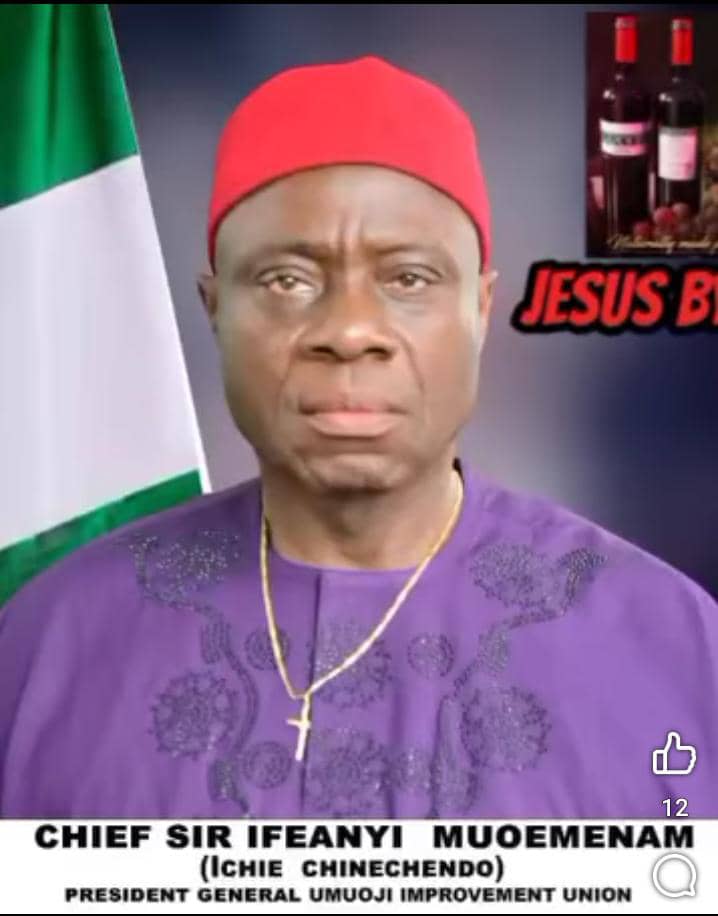

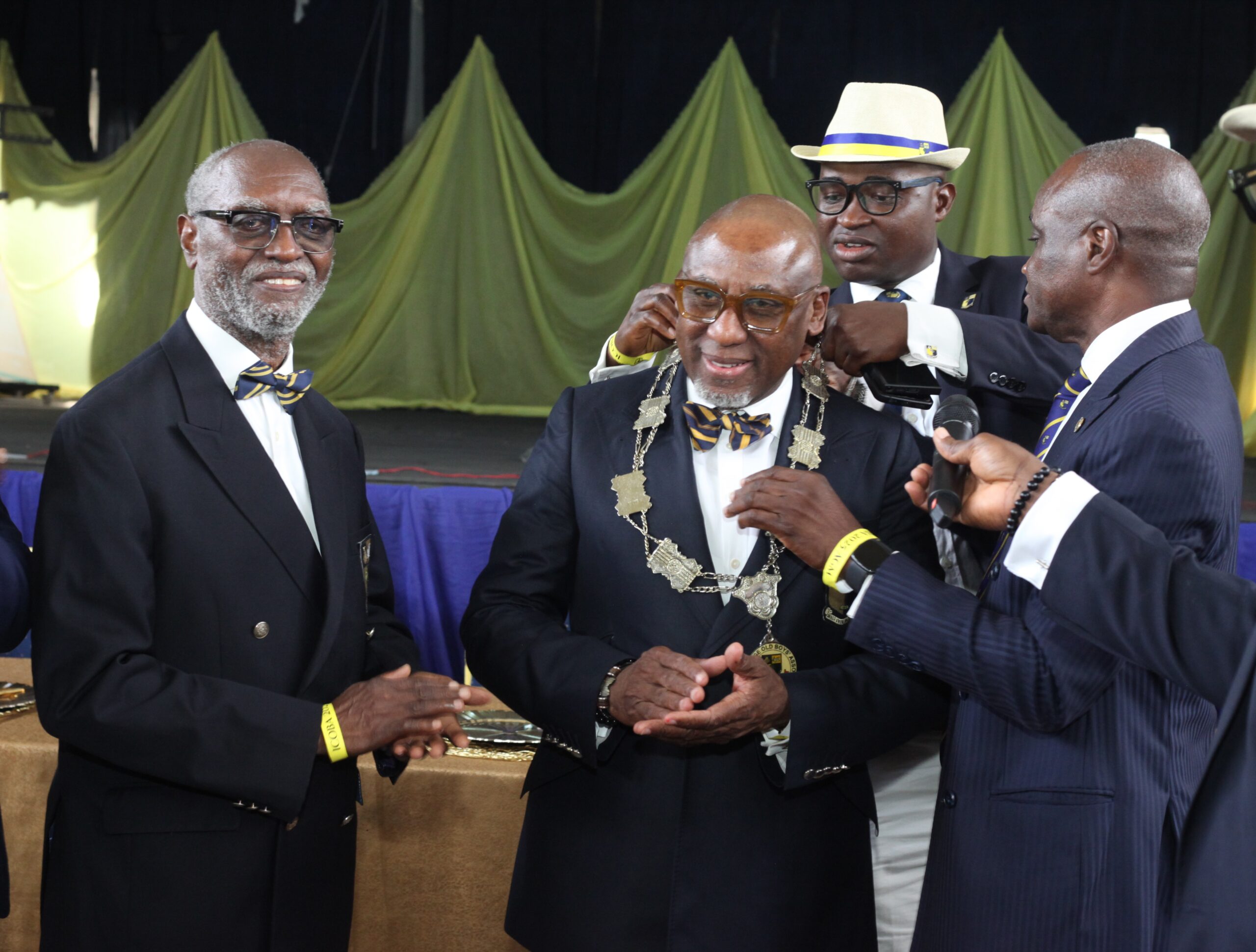
By Winifred Bosa
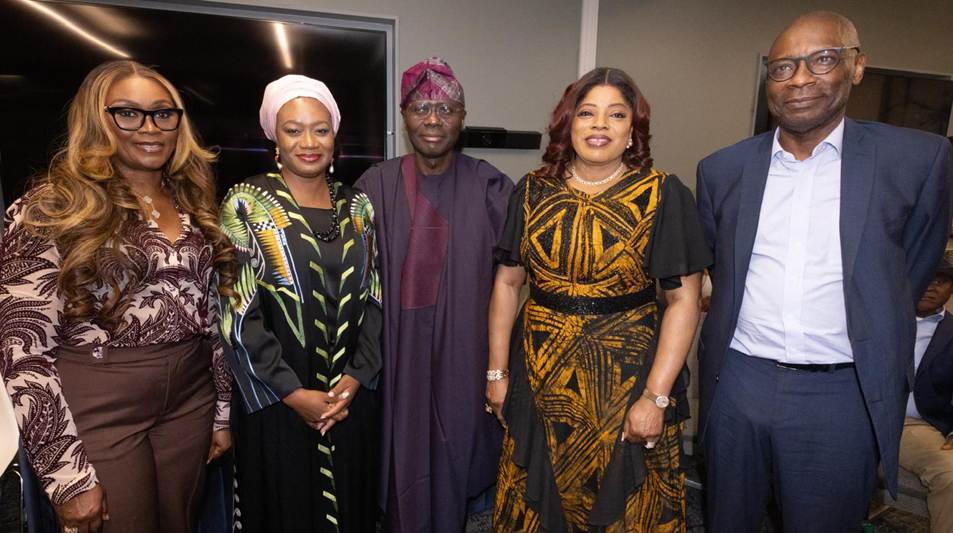
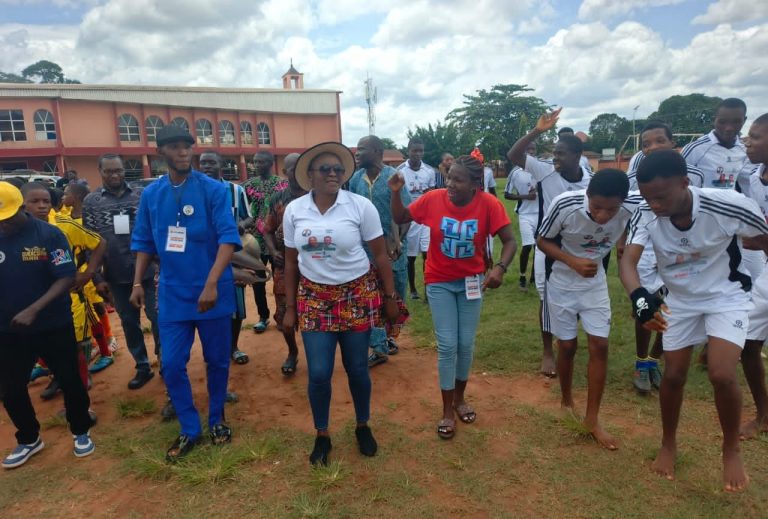 By Chikaodi Chukwuleta
By Chikaodi Chukwuleta